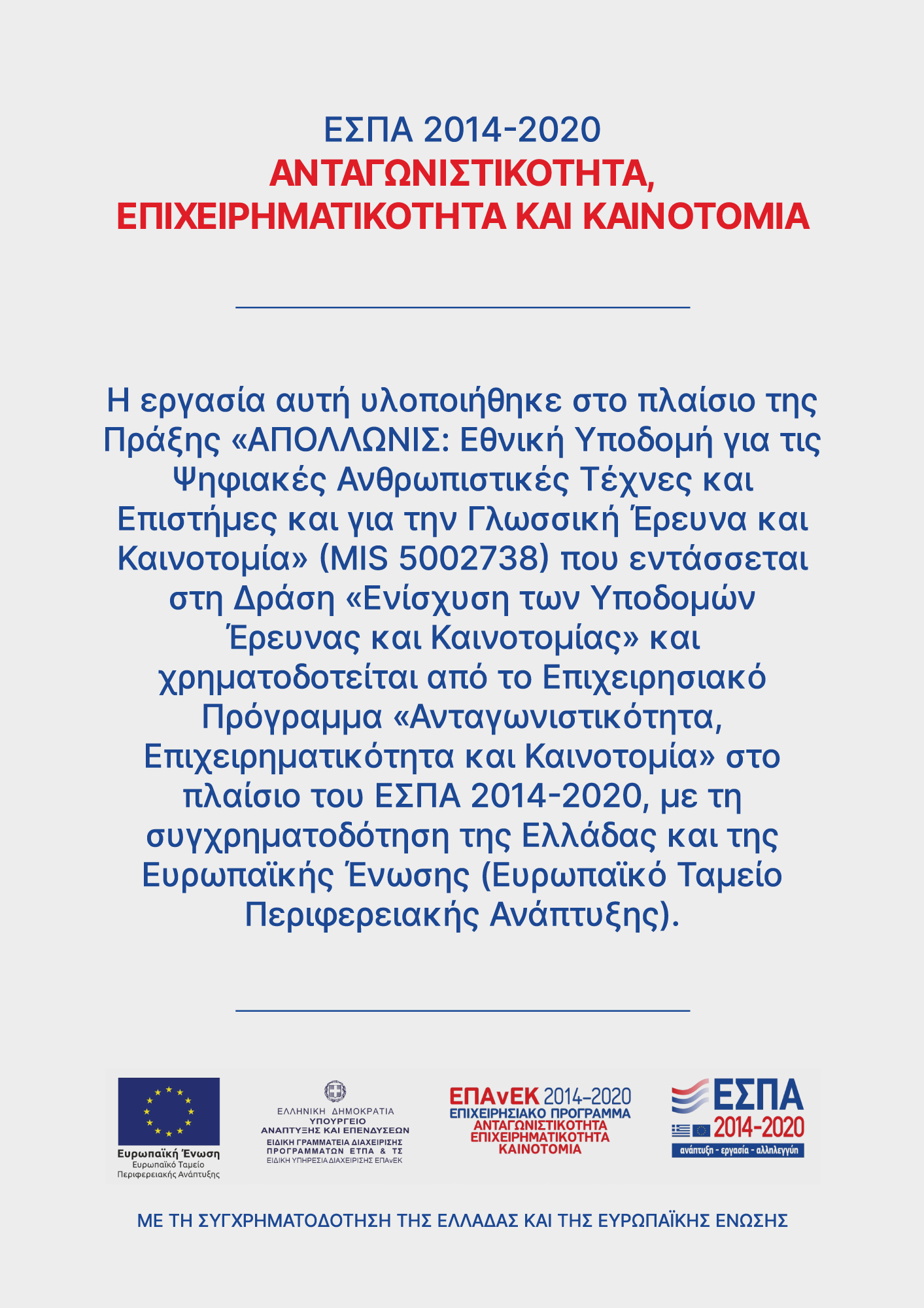Over the last decade the Greek landscape of digital humanities has undergone considerable reframing. At the time of intense digitization, a significant number of cultural heritage institutions from across the country digitized and documented their collections, making them available online or locally for use by both specialists and wider audiences. This wave of digitization projects by Greek libraries, archives, museums, universities, ministry ephorates and publishers, have been instrumental in fostering the growth of major research and teaching resources online, as well as in providing the foundations for national digital infrastructures. The transformative effect of digitization and, more recently, of academic-led initiatives (projects and infrastructures) on Greek scholarship has appeared as the aftermath of increased access to primary and secondary resources, facilitated management of data, and enhanced reuse of digital cultural assets. Digital tools have not only transformed our engagement and interaction with the past, but they have also reshaped arts and humanities research, prompting a new community of digital humanists within, across and beyond Greece. Focusing on the example of APOLLONIS, the Greek Infrastructure for Digital Arts, Humanities and Language Research and Innovation, this talk will present the challenges and the significant shifts the Greek landscape of digital humanities has been going through over the last years.
The Greek Landscape of Digital Humanities Initiatives
Presentation at Fiesole Retreat 2022, Athens, April 5 , 2022.
Links:
https://www.casalini.it/retreat/web_content/2022/presentations/dritsou.pdf
https://youtu.be/YViAk77Vfoc
